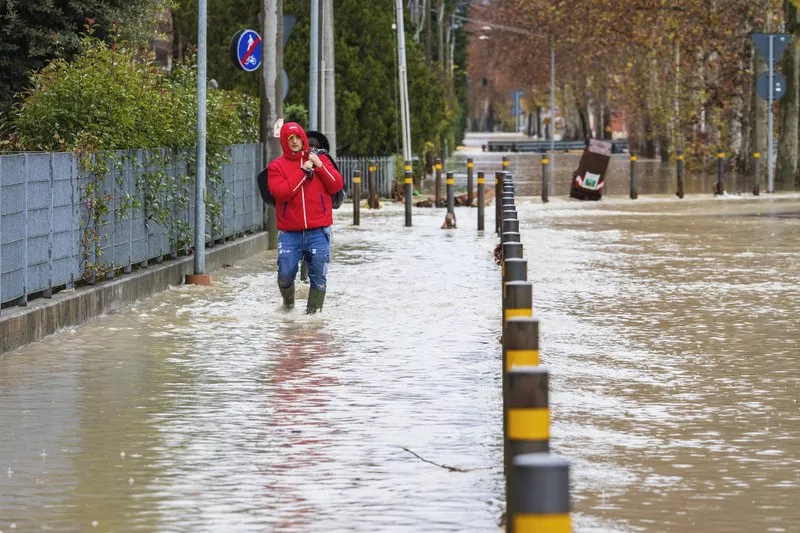Growing climate risks endanger EU food, health and economy, warns new report
- Rural Pact
- Rural Revitalisation Platform
- Resilient rural areas
- Nature and environment
- Energy
- Climate
Climate risks are threatening Europe’s food and energy security, ecosystems, infrastructure, water resources, financial stability, and people’s health. A new assessment by the European Environment Agency provides a basis to help identify policy priorities for climate change adaptation and for climate-sensitive sectors.

Image by Cesare Barillà, Climate Change PIX/EEA
The first ever European Climate Risk Assessment aims to support strategic policymaking at EU and Member State levels, calling for close cooperation with regional and local levels. It states that the EU can play a key role in improving the understanding of climate risks and risk ownership, and address them through legislation, proper governance structures, monitoring, funding and technical support.
Food is one of five broad clusters – along with ecosystems, health, infrastructure, and economy and finance – under which the assessment identifies major climate risks. It highlights that southern Europe is particularly at risk from the increasing impacts of heat and droughts on agricultural production, outdoor work, summer tourism and fire. Climate impacts on food production can cascade to rural and coastal livelihoods, land use, the health of socially vulnerable populations, and the wider economy.
Local economies that are dependent on tourism, agriculture, fisheries and forestry are particularly sensitive to climate change. This includes the Alps and other mountainous regions, coastal regions and islands in the Mediterranean, as well as large areas in northern Europe. Regions characterised by high levels of unemployment, poverty, emigration and ageing populations have a lower capacity to adapt to the impacts of climate change. Within Europe, such regions are concentrated in central-eastern Europe and parts of southern Europe.
“Our new analysis shows that Europe faces urgent climate risks that are growing faster than our societal preparedness. To ensure the resilience of our societies, European and national policymakers must act now to reduce climate risks both by rapid emission cuts and by strong adaptation policies and actions,” says Leena Ylä-Mononen, EEA Executive Director.